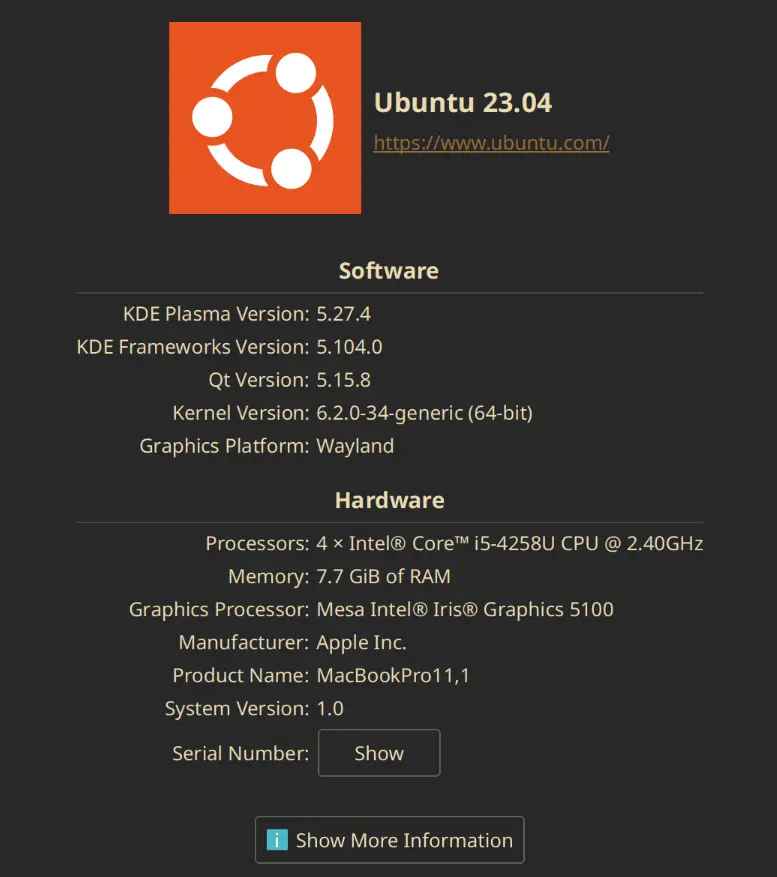Recently I had to return the laptop from my workplace, and was briefly left without a working laptop. Luckily (that’s what I thought at the time), we had a spare old 2013 macbook laying at home with an upgraded battery and a 256 GB SSD. The only problem was – it had MacOS installed. Now, I don’t really have a problem with using MacOS, in fact I had to daily-drive it for the past 8+ years, as most of the time I was using a work-issued laptop, which unsurprisingly ran MacOS. But this time I thought, wouldn’t it be fun to try and install a working Linux distro on this old macbook? I mean, it’s not like I have anything better to do on a weekend, right? What followed was a journey of pain, suffering, surfing 8 years old forum posts, with occasional glimpses of hope and joy, which made the entire experience worth it. Some of the problems I encountered were really Mac-hardware specific, while the others had to do with the rather early stage of Wayland protocol and the HiDPI support in general in Linux (worsened by the disinterest of corporate software developers in spending at least some time on making sure their product works on not-so-widely-used OS-s).



2012 MacBook Pro with an upgraded ssd.
Installed Fedora 38 easily on it with just one line of command for enabling rom fusion to get the WiFi drivers.